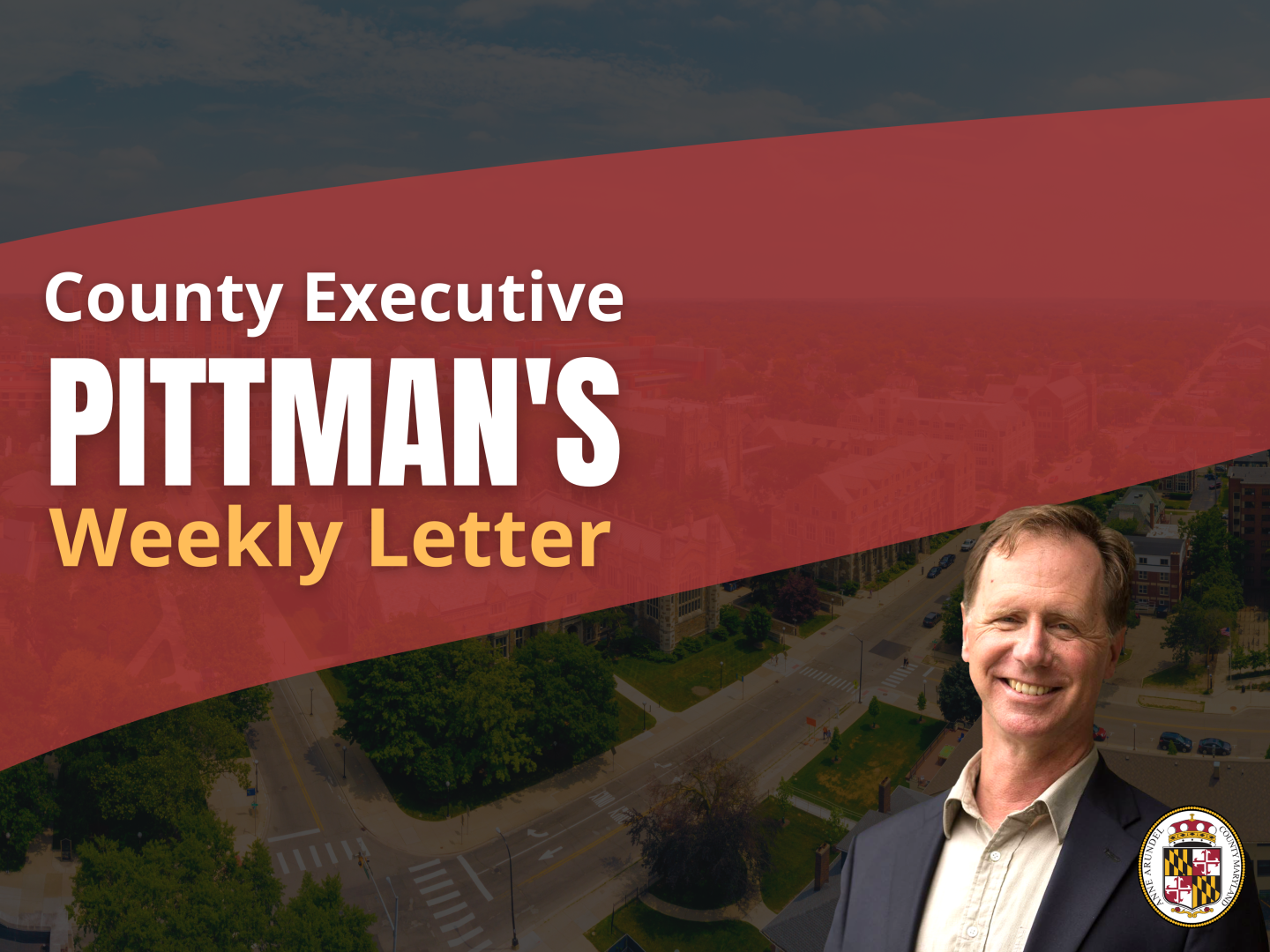Some say I’m naive, but after five and a half years in office, I still believe that good government is created from the bottom up, not the top down.
That’s why I’m asking for your help.
We need volunteers to sign up, and sign up now, for Stakeholder Advisory Committees to plan land use in three of the county’s nine regions, and for the countywide Public Campaign Finance Commission.
Here’s the why, and what’s involved.
Stakeholder Advisory Committees spend a year working with long-range planners and with their neighbors evaluating the land and the infrastructure of their communities. They make recommendations on proposals for changes to zoning, and they work with staff to create a Region Plan for approval by the County Council. We look for people who live or do business in the region, and we look for diversity of background and thinking.
The three regions needing volunteers are 5 (Odenton, Piney Orchard, Gambrills, Woodwardville, Crofton and Two Rivers), 6 (Crownsville, a portion of the I97 corridor, and parts of Millersville), and 8 (Davidsonville, Harwood, Lothian, Friendship and parts of Edgewater). Everything you might want to know about all the county regions and the process is at the Community Hub for Region Plans.
On Monday night the County Council approved the work of Stakeholder Advisory Committees from Regions 2 and 7, the westernmost part of the county and the Annapolis area. Not everyone liked everything about the process and the outcome, but compared to past comprehensive rezonings in our county, this was good government.
Here was the difference. In the past, there was very little community involvement early in the process. Instead, there were land speculators going directly to members of the County Council and to the County Executive making a case for upzoning of their property, upzoning that would significantly add value to their holdings. If the administration agreed to honor the request, it appeared in comprehensive rezoning legislation and if opponents didn’t notice, it moved quietly through the County Council. If the County Executive did not honor the request, it was made to members of the Council, who might introduce it as an amendment to the administration’s bill.
By empowering Stakeholder Advisory Committees to create Region Plans and make recommendations on rezoning requests, both the County Executive and members of the County Council must now respond to a community-driven process. Owners of land now apply for upzoning to the local committee in a very transparent manner, and recommendations are based on the guiding principles of our award-winning Plan 2040: land use that is smarter, greener, and more equitable. Zoning proposals that circumvent this new process must meet a very high standard of public benefit to even be considered by the County Council.
Selection to serve on a Stakeholder Advisory Committee is a high honor, and the reward for service is a deep understanding of the community where you live. To apply, visit this link and click on your region.
Despite these reforms in how land use decisions get made in our county, most people still believe that their elected representatives are beholden to private interests, particularly the interests that contribute large sums to their campaigns for office. Having worked within that system for six years now, I am more convinced than ever that it needs reform.
On June 5, 2023, the Anne Arundel County Council passed a bill at my request that creates a new option whereby candidates for County Executive and County Council can fund their campaigns with a combination of small contributions (maximum $250) and public funds. Our research shows that over the last three cycles, only 3.2% of funds donated to County Executive and Council candidates would be defined in this program as small contributions.
To qualify for the public funds, the candidate must demonstrate broad public support by collecting a minimum number and sum of small contributions - 500 contributions totaling at least $40,000 for County Executive or 75 contributions totalling at least $7,500 for County Council.
Programs like this have been used in the Maryland governor’s race (Larry Hogan was elected to his first term this way), and in Howard, Montgomery, Baltimore County, and Baltimore City. Our law requires that a commission made up of nine members, including one from each of our seven Council Districts and no more than five from any one political party, oversee implementation.
I believe that this program will allow a small number of high quality candidates to emerge in the 2026 campaigns for County Council and for my job. They may be people who lack connections to high-dollar donors, but they’ll be the ones willing to put in the hard work of reaching ordinary residents and giving them the opportunity to make history.
If you share this vision of people-powered campaigns for public office in our county, I hope you’ll go to this link and apply to serve on our Public Campaign Finance Commission.
My own service as County Executive ends on December 7, 2026, as required by County Charter. When that day comes, I will look back on our creation of region plans and public campaign finance as our administration’s most empowering contributions to the people we serve.
Until next week…
Steuart Pittman
Anne Arundel County Executive

